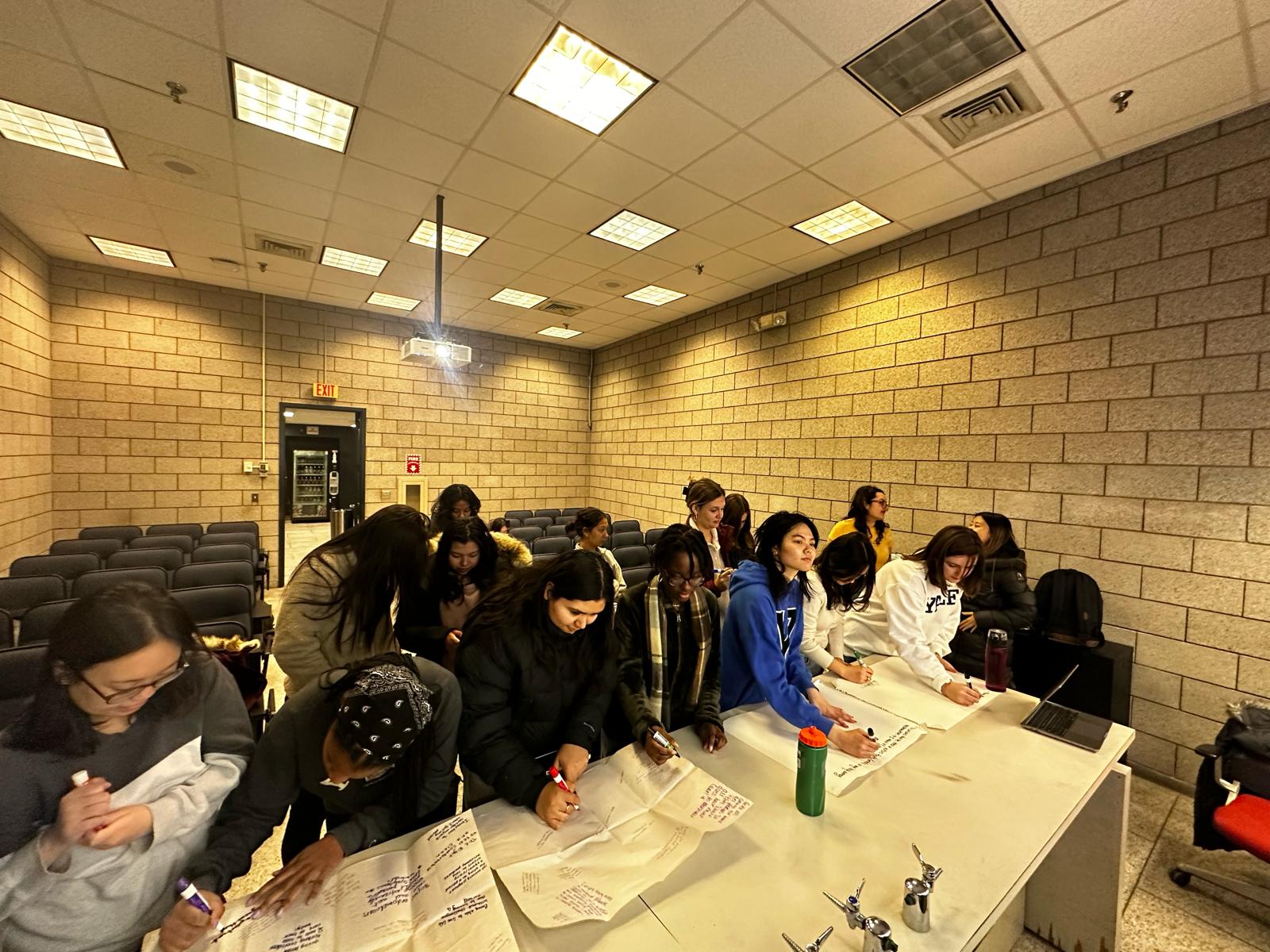YaleBleeds supports New Haven Public Schools providing free period products to meet state law requirement
The undergraduate student organization is continuing its work with the New Haven Board of Education to ensure free menstrual products are made available to local students.

Courtesy of Jessica Yu
YaleBleeds, a student organization dedicated to menstrual equity, is working with the New Haven Board of Education to ensure that schools in the city, ranging from grades 3-12, provide free period products in all women’s and gender-neutral restrooms and in at least one men’s restroom. This is to meet new requirements of Public Act No. 23-160 which the Connecticut General Assembly passed on July 1, 2023.
According to the Connecticut Department of Public Health, the law intends to address period poverty, as some students may struggle to purchase period products due to lack of household income. However, despite the legislative mandate, many New Haven Public Schools still do not offer free menstrual products for their students.
“Our initial reaction to the lack of implementation was to emphasize advocacy for the importance of this policy; however, after we began discussing with individual districts, we realized that the rollout timeline of the policy had been pushed back,” said Rhea McTiernan Huge ’27, a New Haven resident and a YaleBleeds member working closely with New Haven Public Schools and the Board of Education.
The policy was originally designed to mandate compliance by Sept. 1, 2023. However, as a result of the slow and costly adoption of this updated policy, the date was recently extended to allow schools more time to adjust. Connecticut schools now have until Sept. 1, 2024 to provide free menstrual products for their students.
The extended timeline means that NHPS is not delinquent as a result of its widespread lack of implementation to date. Rather, YaleBleeds members said that local schools are struggling to comply because they lack adequate funding to do so.
“Funding and logistics have proven to be the main issues,” McTiernan Huge said. “The state of Connecticut passed the law but proceeded to give no funding to local school boards. Our schools are already underfunded, so it’s a big ask for the state to add this to the docket.”
The legislation provides no explicit mention of funding.
Following the passage of the legislation, the Connecticut Department of Public Health released a report to guide schools through the implementation process. The report does not mention any sources of funding for schools to draw from, although it does provide some guidance on the quantity of products that schools should purchase.
“As an organization, we want to get involved politically to search for adequate funding, potentially reaching out to the New Haven city council or campaigning a fundraiser,” Jessica Yu ’26 said. “Puberty is a hard time for students; it’s hard to feel that you have no control over your body, especially for children, and having access to the appropriate resources and support is important to build healthier relationships with our bodies.”
According to McTiernan Huge and Yu, YaleBleeds first planned to advocate for a policy requiring free menstrual products in local schools, and only after investigating the state legislative record and “government-adjacent websites” did they find that such a policy already existed.
McTiernan Huge clarified that the New Haven Board of Education was aware of Public Act No. 23-160; however, because of its extended implementation deadline, NHPS was yet to be made aware of the new regulation.
Although McTiernan Huge and Yu were unable to identify the exact reason for why the legislative rollout date of this policy was pushed back, they both commented that the New Haven Board of Education remains committed to its timely and effective implementation.
Both students said they never felt as though the legislation was intentionally neglected, and said that they hope that increased visibility of period poverty and menstrual equity issues will expedite the implementation process.
“From the various conversations and meetings I have been a part of, I think district staff are supportive, understand the issue, and are working on the logistical issues connected to rolling this out to all 41 schools,” Matt Wilcox, the vice president of the New Haven Board of Education, wrote.
Wilcox also added that this issue is being handled centrally with a “district-wide” approach, not at the school level.
To conclude, Wilcox mentioned that the New Haven Board of Education will present a “restroom report” at an upcoming Finance and Operations meeting, where he will request that the topic of period poverty and free menstrual products be included to get more information about the rollout plans.
Yale Bleeds — formerly known as PERIOD@Yale — was formed in 2018.







